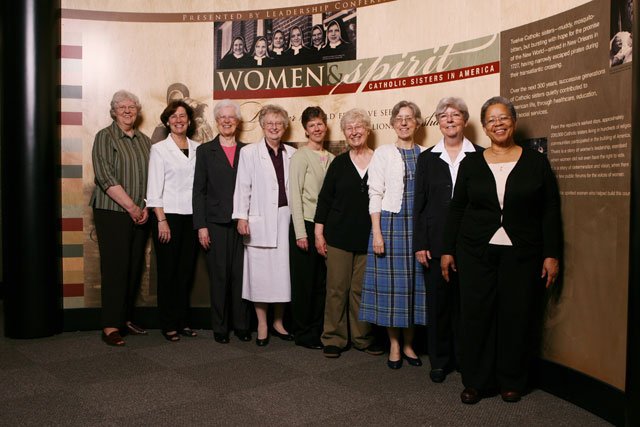Religious life is like the wheel: people keep on reinventing it.
 ‘The future depends on the possibility of dialogue between the old and new orders’
‘The future depends on the possibility of dialogue between the old and new orders’
Religious life is like the wheel: people keep on reinventing it. This is good in so far as it shows the Lord reinvigorating this important part of the Church’s life. What’s problematic is that new religious orders soon make the sorts of mistakes from which experience could save them while the old orders quietly fade away for lack of new life.
New religious congregations are a sign that religious life is an essential part of the Church, a part that is always enlivened by the Holy Spirit to be bold and creative. Yet even these orders are prey to the demons of human nature, as are we all. While the Holy See regularly sends apostolic visitations to religious orders to sort out a problem, the number of visitations to new congregations is surprising; while there are no published figures, my hunch is that the ratio is higher among new congregations.
The most dramatic example of this is the Legionaries of Christ, where the Holy See has taken direct control for the time being. This was a highly “successful” new order whose founder, we now know, was deeply corrupt. Fr Maciel fathered children, abused seminarians and took illegal drugs. This is not a case of plus ça change. Whatever the current state of the older orders, their founders and foundresses were almost without exception holy people who gave of their substance in the service of Our Lord and his Church.
Standing back, let me offer a broad-brush analysis of the pros and cons of the new and old religious congregations. The old orders have great liberty of spirit; their members are rooted in the essence of the Gospel, in traditions of deep prayer and in the service of the Church. The problem is that this liberty of spirit can easily become libertarianism, with the Gospel redesigned and the Church marginalised. Religious in older orders often suffer from the vice of pride. They believe that their longevity means they know what the spirit of the religious life is and entitles them to sit lightly to the letter of their order’s tradition – and, in some cases, sit lightly to the Catholic tradition. We know best.
Something of this attitude appears to be what has provoked the Holy See’s criticism of the Leadership Conference of Women Religious in the US. They want to be liberal Catholics, which is pastorally commendable, but some Religious then use this pastoral generosity to justify credal and canonical dissent.
Turning to the newer orders, their distinguishing virtue is their dynamic fervour and their complete trust.
They are living examples of Our Lord’s insight that “unless you become like little children you cannot enter the Kingdom of Heaven”. However, being childlike can easily tip into being childish, with an excessive reliance on rules and externals. In this way, gifted founders can keep people in subservience and damage well intentioned new members.
New orders can fall into vanity and self-satisfaction. To an outsider, it looks as if they believe that the influx of new members indicates God’s blessing. We may not be old, they seem to say, but we are good.
So how can the old and the new come together with the humility and magnanimity that are the antidotes to pride? Both need to recognise that an order’s charism is not something given at one point in time by a single founder; it emerges. First, the foundational charism emerges from a process of discernment over a period of years; in the case of my own order, Benedict took the existing monastic life and distilled it into his Rule, a rule which he recognises is built on the insights of others. Secondly, the charism is never a done deal never to be revisited.
Turning again to Benedict, he says his is a little rule for beginners; he implies that there are other ways of living this life. This week sees the publication of A Future Full of Hope?, edited by Gemma Simmonds, the first British study of religious life in many years. The future can be full of hope, but whether it is will depend on the possibility of dialogue between the old and the new. Many older orders are now looking extinction in the face and some are determined to survive; many new ones are facing problems that in their enthusiasm they believed would never happen to them but now wish to confront. Both need to help each other develop their charisms so that they combine liberty of spirit with fervent discipline in the service of the Catholic Church.
?Fr Christopher Jamison OSB is director of the National Office for Vocation of the Catholic Church in England and Wales.
- Church mourns death of popular nun in Meghalaya, North East India.
- Young want to be heard, invited, challenged
- With Pope Francis, it's prime time for Jesuits
- Vatican official's olive branch for US sisters
- Leadership Conference of Women Religious (LCWR) reform prompts Twitter duel
- Church mourns death of popular nun in Meghalaya, North East India.
- Vatican's doctrinal head lambasts US sisters for disobedience
- “The Future of Consecrated Life in the United Kingdom and Europe.”
- Does religious life have a future? Yes.
- Number of new nuns in Britain trebles in five years


 Votes : 0
Votes : 0









